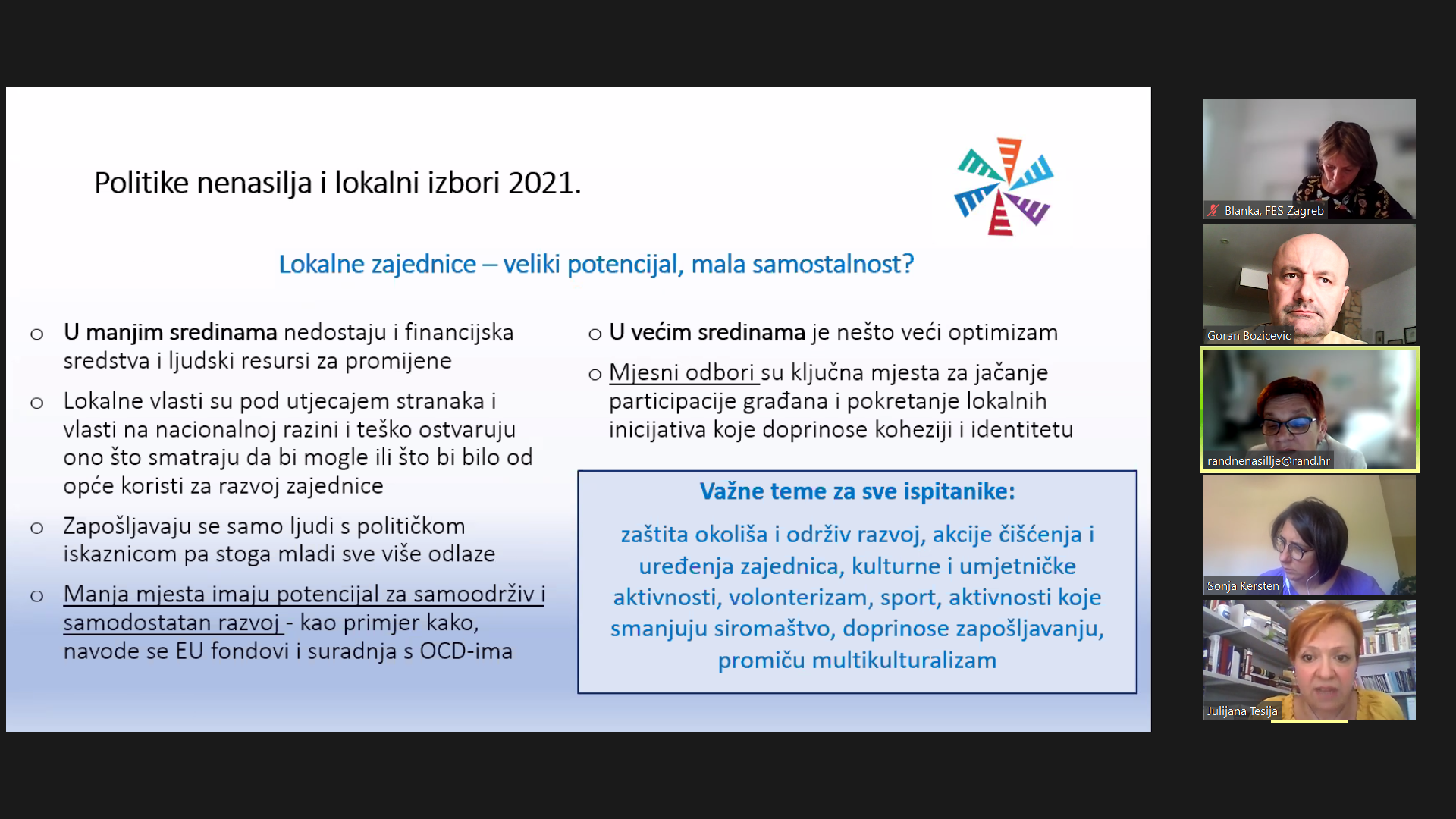Our lecturer, Julijana Mladenovska-Tešija, conducted a research on the politics of non-violence and the local elections in 2021, together with the Politike nenasilja association from Osijek, and their partner institutions RAND and Miramida. The results were presented on May 12, via Zoom, with the help of the Friedrich Ebert Foundation.
One of the conclusions of the research is that a growing number of those worried for their future and the culture of violence in Croatian society are getting actively involved in local politics. They believe that political compromises open doors to nepotism and corruption, that violence is present at all levels of our society and that change is possible through a serious involvement of citizens in the process of decision making, recognizing nonviolence as a tool for dialogue and resistance.
95 interviewers participated in this research from 29 Croatian cities. "It is a positive surprise that most interviewers (89,2%) agree with the statement that connectivity, activity and mutuality are pillars of sustained development: we are connected in an ecosystem for which we need to take responsibility. However, the differences exist in believing that nonviolence is understood as the care for people and life, but hardly obtained, and connected with the perception of Croatian society as one nurturing and encouraging violence, said Mladenovska-Tešija. That means that nonviolence as a mechanism of action needs to be taught and practiced, to become the tool for seeking creative solutions for local problems. "If we look at the New Testament, we will see that nonviolence is Jesus' "modus operandi", which is why the New Testament is taken as the foundation of peace-making politics. Although violence isn't a dominant topic, as Volf emphasises, but rather a background theme in the New Testament, it is impossible to understand the central point of the New Testament without it. But, that is not to be understood as a call to perpetuate violence in our society or churches. To cite Volf, the Crucified Messiah is not the hidden establishment of a terror system, but its most radical subversion, said Mladenovska-Tešija.
This research is encouraging because it indicates that our society has a positive capital for recognizing nonviolence and that it is necessary to study nonviolence as an active mechanism of stopping violence at all levels.



